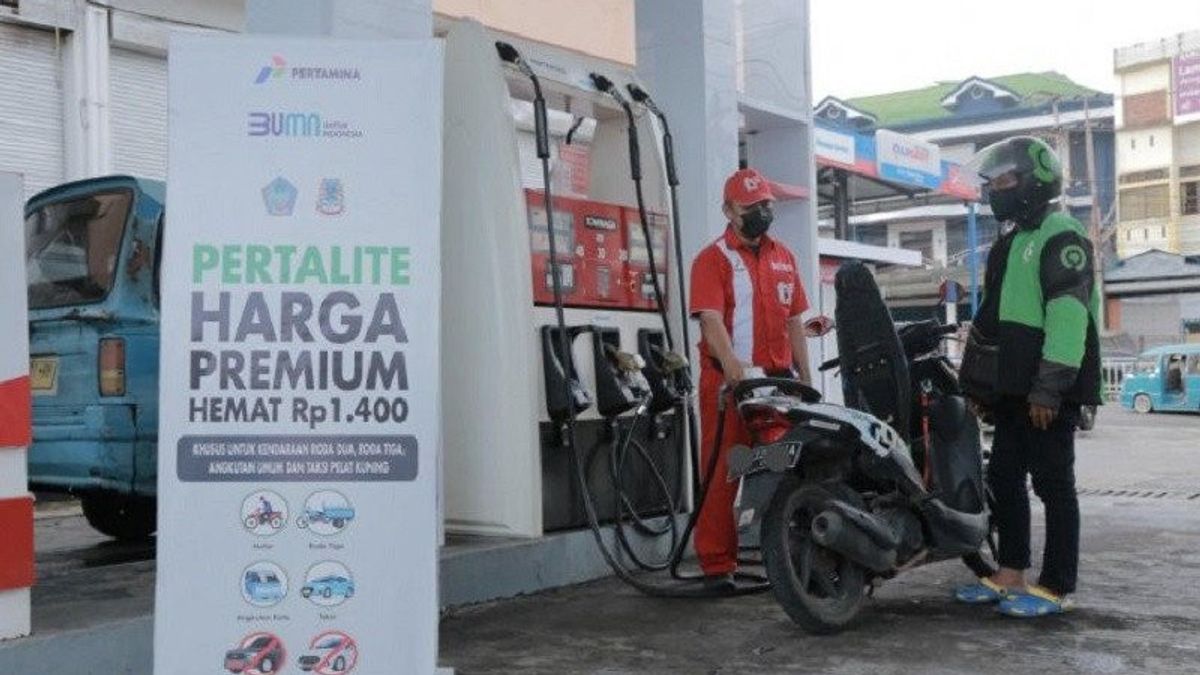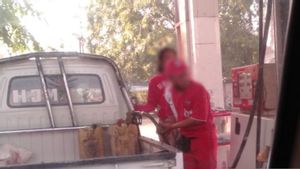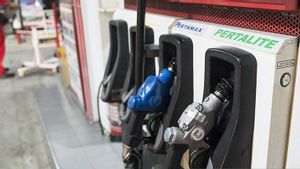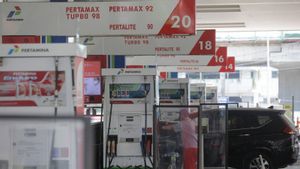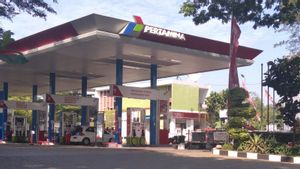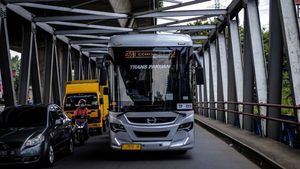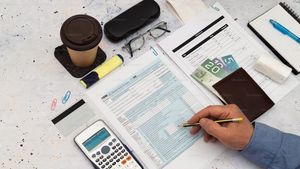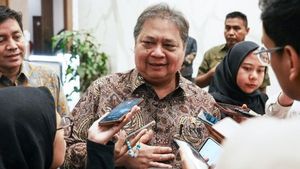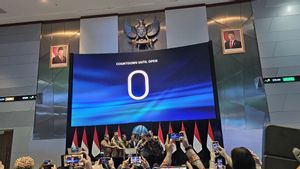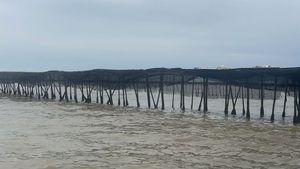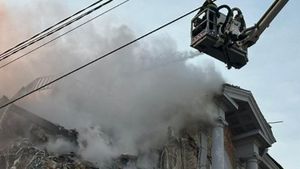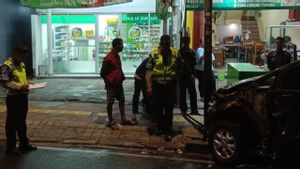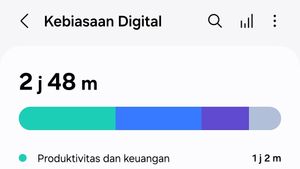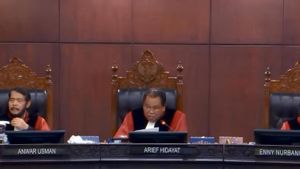JAKARTA - Permata Bank's Chief Economist, Josua Pardede assessed that regulating the distribution of subsidized fuel in a targeted manner is the main solution to anticipate the exhaustion of quotas, so as to avoid scarcity.
"Pertamina's efforts to use digital applications are a way to select who is entitled to receive subsidized fuel. It remains only to implement the use of the application, which must now be prepared and executed properly," said Josua, quoted from ANTARA, Tuesday, August 2.
According to him, accelerating the application of applications for the community can overcome this, because the application can precisely regulate the amount of consumption for each consumer.
"Unlike quotas, where people tend to be able to afford more Pertalite because they have greater purchasing power," he said.
Separately, the Executive Director of the Reforminer Institute, Komaidi Notonegoro, predicts that it is natural to run out of subsidized fuel quotas, especially Pertalite.
This is because the consumption of Pertalite increased this year along with the loss of Premium from the market.
Based on calculations carried out by the Reforminer Institute, the normal need for Premium is in the range of 28-30 million kiloliters (KL), with the assumption that before the Premium abolition program, Pertalite consumption was already 22 million KL.
While the consumption of the latest Premium status is around 6-8 million KL.
"So it's natural that the 23 million KL maximum is only until August or September 2022 because it becomes important so that there is an appropriate arrangement of targets," said Komaidi.
If the right target setting is not carried out, he continued, the government must move quickly to ensure the availability of fuel quotas.
However, it is certainly not easy because it still has to be discussed again with various parties, especially the parliament.
"If there is no regulation, it is simple for the government to increase the quota. As a government, I don't think the conditions are easy," he said.
Komaidi assessed that what Pertamina had done so far with the MyPertamina application in parallel was the company's maximum effort so that the quota of 23 million KL was not exceeded.
"Of course it is difficult to do because the normal quota needs to be in the range of 28-30 million KL per year. So the ball is with the government," he said.
Komaidi assesses that the plan to limit Pertalite and Solar buyers through the revision of the Presidential Regulation by using digital applications will still be difficult to contain the drop in the volume of subsidized fuel this year if the mechanism for distributing subsidies remains to goods.
"Of course, if it is 100 percent effective, it is difficult to do (setting the restriction on subsidized BBM). However, this is an effort that can be done to minimize the impact. Ideally, the subsidy should not go directly to goods. As long as it is still for goods, leakage will still exist," he said.
VOIR éGALEMENT:
According to him, the targeted subsidy arrangement could be for two-wheelers or yellow number plate vehicles.
However, implementation in the field will not be easy. For this reason, community participation is also very much needed to overcome this lack of subsidized fuel quota.
Previously, member of Commission VI of the Indonesian House of Representatives from the Gerindra faction, Andre Rosiade, said the quota that had been set by the government this year, which was 23.05 million KL, only lasted until September 2022.
He urged the government to immediately sit down with the Ministry of Energy and Mineral Resources, Ministry of Finance, Pertamina, and BPH Migas, to discuss the addition of the Pertalite fuel quota.
The English, Chinese, Japanese, Arabic, and French versions are automatically generated by the AI. So there may still be inaccuracies in translating, please always see Indonesian as our main language. (system supported by DigitalSiber.id)
